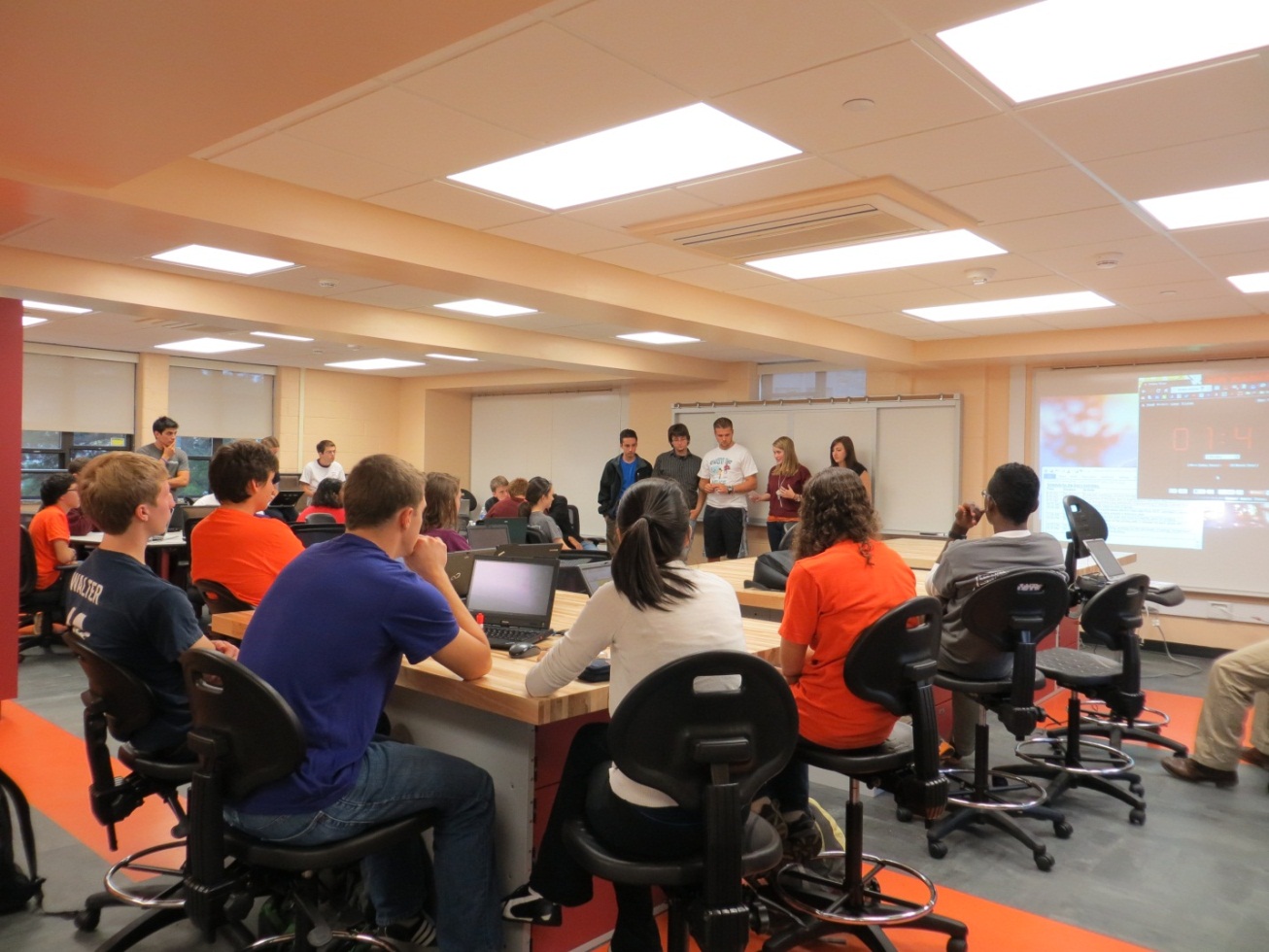Board of Visitors told of new spaces that support student learning outside of classroom

During Monday's Student Affairs and Athletics Committee meeting, Board of Visitors members discovered that the distinction between classrooms and living environments as places of learning is blurring.
Vice President for Student Affairs Patty Perillo and other representatives of the Division of Student Affairs discussed how student learning has become a top priority in the residence halls and how several initiatives in campus residence halls have helped to bridge the gap between the academic and social worlds of Virginia Tech students.
“Residence halls are more than just a place where students go after class,” said Jamie Penven, associate director for academic initiatives in housing and residence life. “By bringing tutoring and advising into the residence halls we are changing the way students view the delivery of such services. No longer are they located on the so-called ‘academic side’ of campus. They are now at the heart of their residential experience.”
The Pritchard Academic Resource Center, for example, was once a little-used lounge on the fifth floor of Pritchard Hall. In 2011, the space was renovated to include new technology, whiteboards, and furnishings, and now is a location for tutoring, advising, academic success services, study groups, workshops, and other resources to support academic learning.
In its first year, more than 1,000 students utilized the center for tutoring in first-year chemistry and math courses.
A similar repurposing of space has since taken place in Lee, Cochrane, and Newman halls and the residential colleges in Ambler Johnston were renovated with common learning spaces in mind.
In Virginia Tech’s 15 living-learning communities, student affairs staff members are collaborating with academic partners to bring a holistic approach to student learning in which students are able to connect with peers, faculty, and university administrators in their living environment.
“We are very fortunate to have so many faculty and staff who enthusiastically work together to give our students the best ― in their academic pursuits as well as their personal growth,” said Eleanor Finger, director of housing and residence life. “Together, we are co-creating dynamic opportunities for growth and learning that matter to our students, and we are creating transformational experiences in our residential communities.”
Research on living-learning communities indicates they have significant positive outcomes for students who participate. They consistently outperform their peers with higher grades. And they are more likely to participate in service, engage with peers around academic topics, and persist through graduation.
“Intentional integration of academic services into the residence halls means more opportunities for learning, more opportunities to form community, and more opportunity to for students to interact with faculty,” said Penven. “Students are really hungry for these opportunities.”
“None of this could happen without our colleagues in academic and support services being willing to do their work in what used to be considered non-traditional ways,” said Perillo. “They are engaging in ways the scholarship of learning informs us — ways to best co-create educational environments. Virginia Tech is a place that not only supports strong collaborations between student and academic affairs, but also helps to facilitate and inspire in students an understanding of themselves — as individuals, as learners, as leaders, and as members of a vibrant community.”



